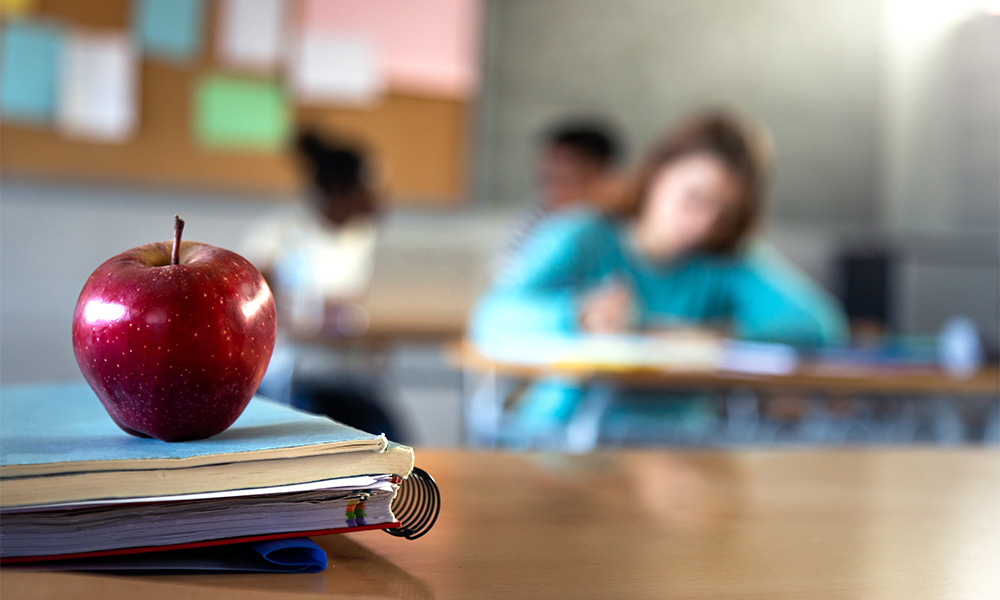
Lutheran school administrators, help your contracted teachers become well-versed in Lutheran doctrine and better prepared to contribute to the mission of your school.
Many Lutheran schools and congregations are hiring more Christian teachers who are not Lutheran or members of an LCMS church due to demographic trends, the growth of Lutheran schools, and a shortage of LCMS-trained teachers and commissioned ministers. While these schools welcome these Christian teachers, there is a desire for them to be well-versed in Lutheran doctrine and the rich heritage of Lutheran education.
The LED Project is designed to be a professional and spiritual development program for Lutheran schools who want to teach and train their non-LCMS faculty and staff members in the doctrine, heritage, and Christ-centered educational practices of the LCMS.
- Participants in the LED Project will:
- Learn, know, and be able to articulate basic Lutheran doctrine
- Be able to apply Lutheran doctrine and teachings in their classroom instruction, co-curriculars, and other interactions with students, colleagues, and parents.
- Receive and experience the joy and affirmation of God’s Word from a Lutheran-Christian perspective, be able to ask hard questions, reflect on ministry moments, and proactively prepare for classroom and teaching challenges from a Lutheran-biblical perspective.
Program format and course details
CUW provides flexibility in delivering the LED Project, offering in-person and virtual options to cater to the diverse needs of schools and participants.
Dr. James Pingel, dean of Concordia’s School of Education, underlined the importance of a stimulating learning environment.
“Participants will experience a highly engaging, relevant, and inspirational classroom setting, whether in-person or virtual, which will enhance their own faith walk and teaching vocation,” said Pingel.
The LED Project delves into a variety of themes and units, including: Quick History of the Rise of Martin Luther, What is a Lutheran?, Who is God?, Luther’s Seal, Solas of Lutheranism, and many more. These topics provide a comprehensive understanding of Lutheran doctrine, history, and theology.
The sessions generally take around 12 hours of instruction to complete. However, instructors have devoted extra hours to certain sessions as needed. Concordia instructors are open to modifying the program based upon the needs of the school, explained Pingel.
“CUW is open to negotiate the format and even the cost of the LED Project and experience,” said Pingel. “We sincerely want to help schools and congregations in this endeavor.”
Since the inception of the LED Project, participating schools have provided a flat rate ranging from $3,600 to $7,200 per cohort. Factors such as the school budget and the number of participants is considered when determining the cost.
Participants who successfully complete the LED Project will receive a certificate validating their program completion. Many Lutheran schools recognize the LED Project for their faculty members’ professional development or continuing education requirements/expectations.
For those interested in the program or wanting to initiate training for non-LCMS faculty, please click here.
LED Program vs. Colloquy
While the LED Program seeks to equip non-LCMS teachers, Concordia also offers a colloquy program for individuals who are members of an LCMS church but are not yet rostered. Two colloquy routes exist:
Online
The most popular route to a colloquy is through the Concordia University Education Network (CUEnet). CUEnet is an online program that requires the completion of eight courses, after which an individual can select a Concordia within the Concordia University System where they would like their final, in-person interview to be conducted. Visit the LCMS’s Colloquy Training for Workers page to find more details and to apply.
On-the-ground or hybrid
CUW also offers some catered options for individuals living in the area or teaching on campus who would prefer to complete the colloquy program in person. Contact Jim Juergensen (J.Juergensen@cuw.edu) for details and to get started.
Want more?
The Division of Continuing Education Studies seeks to meet learners where they are by creating innovative lifelong learning opportunities for individuals of all ages and stages of life. These opportunities seek to provide high-impact, flexible, accessible, transformational learning experiences in accordance with the mission of Concordia.